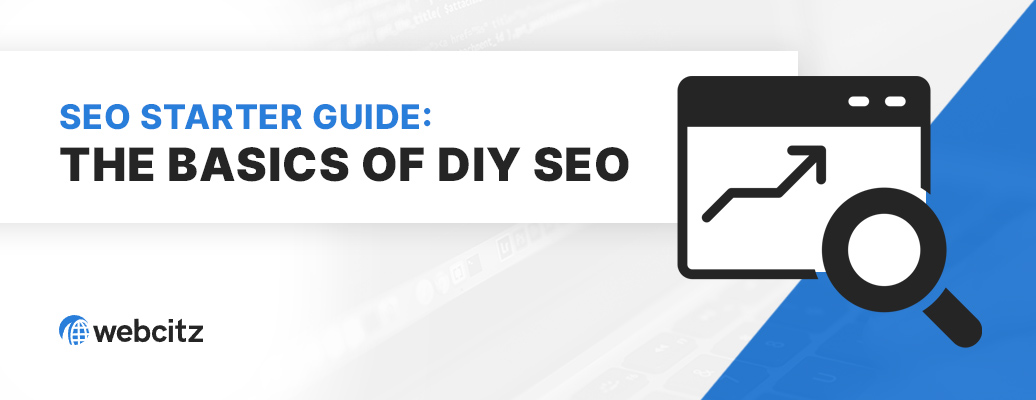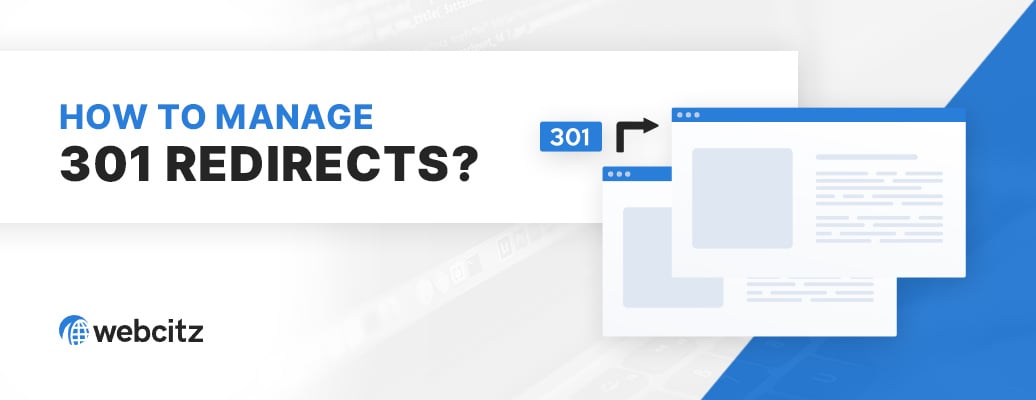Our SEO Audit Services
SEO audits examine a website’s visibility and potential for organic search engine rankings. It is a process of evaluating all aspects of a website and its online presence that can affect search engine rankings.
An SEO audit evaluates a website’s search engine optimization (SEO) health and effectiveness. An SEO audit evaluates a website’s ability to rank higher in search engine results (SERPs). They can conduct manual SEO audits or use tools and software.
Manual SEO audits review a website’s on-page and off-page SEO factors and recommend improvements. SEO audit tools and software automate the process of SEO auditing by scanning a website and generating reports based on the findings.
When conducting an SEO audit, the essential factors are website structure, content, keyword targeting, backlinks, and social signals. You can improve your website’s SEO health and rank in SERPs by improving these factors.
A Few of Our SEO Auditors






Basic SEO Audit
- Small Websites without Ecommerce
- Detailed Report via Email
- Phone Call to Discuss Report
Advanced SEO Audit
- Large Websites with / without Ecommerce
- Detailed Report via Email
- Phone Call to Discuss Report
Benefits of an SEO Audit
An SEO audit can be highly beneficial to any website. It can help identify areas where your site needs improvement and also help to formulate a plan to improve your site’s overall SEO.
An SEO audit reviews your website’s Search Engine Optimization practices. It is a helpful tool for businesses to assess their current SEO efforts and identify areas for improvement. Some benefits of an SEO audit include:
- Improved search engine ranking: By identifying and fixing on-site SEO issues, your website can rank higher in search engine results pages (SERPs).
- More targeted traffic: Optimizing your website for specific keywords can attract more visitors interested in your products or services.
- Increased leads and sales: A higher ranking in SERPs can lead to more website visitors, which can translate into increased leads and sales.
- Improved ROI: An effective SEO campaign can generate a higher return on investment (ROI) than other marketing initiatives.
- A more substantial online presence: A strong SEO presence can help you build brand awareness and establish your business as a credible source of information.
An audit can be a helpful first step if you want to improve your website’s SEO. You can create a plan for optimizing your website by identifying areas for improvement.
Mold Removal Contractor
Roofing Company
RV Rental
Ecommerce Website
The Process to Auditing a Website
A comprehensive SEO audit service assesses the health of your website. Moreover, it considers factors on-page (like title tags and meta descriptions) and off-page (like link development and social media engagement).
By conducting an SEO audit, you can identify areas of improvement so your website can rank higher on search engine results pages (SERPs).
Not sure how to get started? Here’s a quick guide to conducting an SEO audit:
1.) Start with a Website Analysis
Thorough website analysis should be the first step in your audit. The analysis will help you know where your website is getting weak to get the reach.
- To start, take a look at your website’s traffic data. This will give you an idea of how well your website performs in search.
- Next, analyze your website’s content. Look at your website’s pages and posts to see if they’re optimized for your target keywords. Changes will be necessary if not.
- Lastly, take a look at your website’s backlink profile. Using this, you can see which websites are linking to your site. If you know any low-quality or spammy links, you’ll want to remove them.
2.) Check Your Website’s Technical SEO
After completing a website analysis, it’s time to move on to a technical SEO audit. This is where you’ll check for any technical issues that could be holding your website back from ranking higher in search.
Start by considering the title tags and meta descriptions of your website. Search engine results pages contain snippets of text. If they’re not optimized, you’ll need to make some changes.
If there are any errors in your website’s code, you should fix them. You can accomplish this with a tool such as Screaming Frog. If you find any errors, you’ll need to fix them.
3.) Analyze Your Website’s Backlink Profile
After you’ve checked your website’s technical SEO audit report, it’s time to analyze your website’s backlink profile. Links to your website will be displayed here.
If you see any low-quality or spammy links, you’ll want to remove them. Majestic is a tool you can use to do this.
4.) Conduct an On-Page SEO Audit
The final step of your SEO audit is to conduct an on-page SEO audit. This will help you identify any areas of your website that need improvement.
What We Review in an SEO Audit
As an SEO auditing company, we typically include the following components:
1.) Website Analysis
Website analysis is a review of the website’s architecture, design, content, and functionality. Generally, an SEO audit will examine your site’s overall health, technical setup, content, and link profile. Identifying any areas affecting your site’s ranking will help you improve it.
2.) Site Health
This includes checking for site errors, duplicate content, broken links, and site speed issues. By performing an SEO audit, you can identify any areas of improvement and take steps to fix them. By doing this, your website’s ranking in search results will improve, and traffic will increase.
If you’re unsure how to conduct an SEO audit, you can hire a professional or use an online tool. You can perform many audits, but some common ones include checking your site’s title tags, meta descriptions, and header tags. Additionally, you should check your website’s structure and check for broken links.
3.) Link Analysis
An SEO audit also includes an analysis of your link profile. This means looking at all of the sites linking to yours and determining whether they are natural or unnatural links. A genuine link is created by another site and has no relation to you or your business—for example, someone writing a blog post about how they love your product or posting a picture of it on Instagram.
An unnatural link was created by another site and explicitly intended to benefit you or your business—for example, if someone writes a blog post about how much they love your product and then links directly to it from within the article.
A link profile is a collection of links pointing to a website and the anchor text used in those links. A link profile can be used to determine if any links are not relevant or spammy, which can result in penalties from Google and other search engines.
By performing regular SEO audits, you can ensure that your site is in good shape and can rank well in search engines.
4.) Social Media Analysis
Social media analysis is a part of an SEO audit that analyses your social media pages and their engagement. This includes the number of followers, how often you post, and how you engage with your audience.
This analysis will help you determine what kind of content works for your brand and what isn’t, so you can tailor your posts to reach and engage with your audience better. It’s also an excellent way to see if you need more people involved in your social media marketing efforts—and if so, how many more!
The following information can be collected during a social media analysis:
- Number of followers/likes/subscribers
- Rate of growth in followers/likes/subscribers over time
- Engagement rate (number of people who interact with your posts)
- Content posted on each platform.
5.) Technical Setup
A search engine optimization audit thoroughly reviews your website and its online presence. An SEO audit service assesses the strengths and weaknesses of your current technical setup and provides recommendations for improving performance.
The technical setup of a website includes factors like:
- HTML tags are used to describe the content of your page.
- URLs are used to provide information about each page on your website.
- Title tags display text at the top of each page on your site. They can include keywords related to your business or products that help people find you when they search online.
- Search engines use meta descriptions to display short summaries of your pages when someone searches for something relevant to your offer. These summaries should be compelling enough to encourage users to click through and visit your site!
6.) Content
This involves auditing your site’s content to ensure it is keyword-rich and optimized for search engines. In an SEO audit service, content is the most crucial element. Content includes the words you use to describe your business and the format of those words.
This includes your meta title and description tags and how many words are in each section. Your content should be written to make visitors want to click through and learn more about your company.
For SEO audits, content is essential for any website. An audit will look at:
- The quality of your content (are there spelling or grammatical errors? Are there any duplicate or low-quality pages?)
- The length and depth of your content (is it too short or too long? Does it have enough information for users to find what they need?)
- The relevancy of your content (is it relevant to the audience you’re trying to reach?)
Tools for Auditing a Website
For doing an SEO audit, there are a few different tools that can come in handy. Here are a few of the best tools for performing SEO audit services:
1.) Google Analytics
This free tool can help track your website’s traffic and see how users find your site.
Google Analytics is the most critical tool for any SEO audit, as it provides a wealth of information about your web presence. It’s also free! Though you will have to sign up for an account to use it, their SEO audit process is painless.
2.) Google Search Console
This is another free tool from Google that can help you see how your site performs in search results.
SEO is a complex field with many moving parts. Where Search Console is strong, other tools pose potential blind spots. None of this should take away from Search Console, which provides us with valuable insights about a website’s behaviour, performance, and visibility in search.
3.) Ahrefs
This tool helps you understand your website’s link profile and identify link-building opportunities.
4.) Screaming Frog
This is a paid tool, but it’s definitely worth the investment. Your website can be crawled and SEO data collected.
If you’re doing a website audit and want to identify any possible issues that might be holding you back from ranking (or holding your orders back), then Screaming frog is the best tool you can use. It’s easy to use and get started with, gives you valuable specific information about technical SEO items, and is fast. It also provides a few competitor tools as well.
5.) Moz Pro
This is another paid tool that offers many features for doing an SEO audit. Among its features are a site crawler and keyword research.
The tools offered by Moz Pro are the best available for auditing your site’s SEO. The software presents itself as a complete suite of SEO tools and boasts a clean and well-organized interface that makes it simple to navigate.
6.) Semrush
It is a paid tool that offers a lot of features for doing an SEO audit. It includes a site crawler, keyword research, and more.
No matter which tool you use, doing an SEO audit can be a helpful way to improve your website’s performance. SEMrush is a powerhouse tool, and it is the best one on this list for those doing an SEO audit for the first time.
Moreover, their keywords, backlinks, and other information databases are unprecedented.
SEO Audits FAQs
What is an SEO audit?
An SEO audit is a comprehensive evaluation of your website to identify strengths, weaknesses, and opportunities related to search engine optimization. It provides insights into any issues that might be affecting your site’s visibility and performance in search engine results
Why does my small business need an SEO audit?
Even if you have a functional website, there may be underlying issues hindering its search ranking potential. An SEO audit identifies these issues, ensuring that your website is fully optimized to attract and engage your target audience.
How often should I get an SEO audit?
SEO best practices and search engine algorithms evolve over time. Ideally, a comprehensive SEO audit should be conducted annually. However, mini-audits or checks can be beneficial monthly, especially after making significant changes to your site. Within an SEO campaign, we typically review audits of our client sites monthly.
What areas do you cover in the SEO audit?
Our audit examines a range of areas including on-page elements (like title tags, content, meta descriptions), technical aspects (like site speed, mobile optimization, XML sitemaps), and off-page elements (like backlinks and social signals).
I have a limited budget. Is an SEO audit still worthwhile?
Definitely! Understanding your website’s weaknesses and strengths is crucial. Even with a tight budget, prioritizing the most critical SEO issues can result in noticeable improvements in your website’s performance and search ranking.
How long does the audit process take?
The scanning process can take minutes to days to complete, based on the size of your website. From there, the time required to review the discovered issues, discuss them with you, and handle the work can be several hours or more.
Once the audit is complete, can you help with implementing the recommended changes?
Yes, our team is equipped to assist in both identifying issues and executing the solutions. Whether it’s technical fixes or content optimization, we’ll ensure your website adheres to the best SEO practices. We have a full team of web developers and marketing experts on-staff.
How will I know if the changes made after the audit are making a difference?
Post-audit, we provide a detailed report comparing the before-and-after status of your website. Additionally, with continuous monitoring, you’ll see improvements in metrics like organic traffic, bounce rate, and search rankings.
What’s the difference between an SEO audit and ongoing SEO services?
An SEO audit is an on-demand, in-depth analysis of your website’s SEO health. Ongoing SEO services involve continuous optimization efforts like content creation, backlink building, and performance improvements.
Why should I choose your agency for my SEO auditing needs?
Our team has seasoned SEO experts who stay updated with the latest industry standards. We use a combination of manual analysis and advanced tools to provide you with actionable, tailored recommendations for your business. We typically test any new strategy on our own website first, since we rely heavily on organic traffic for new leads.









